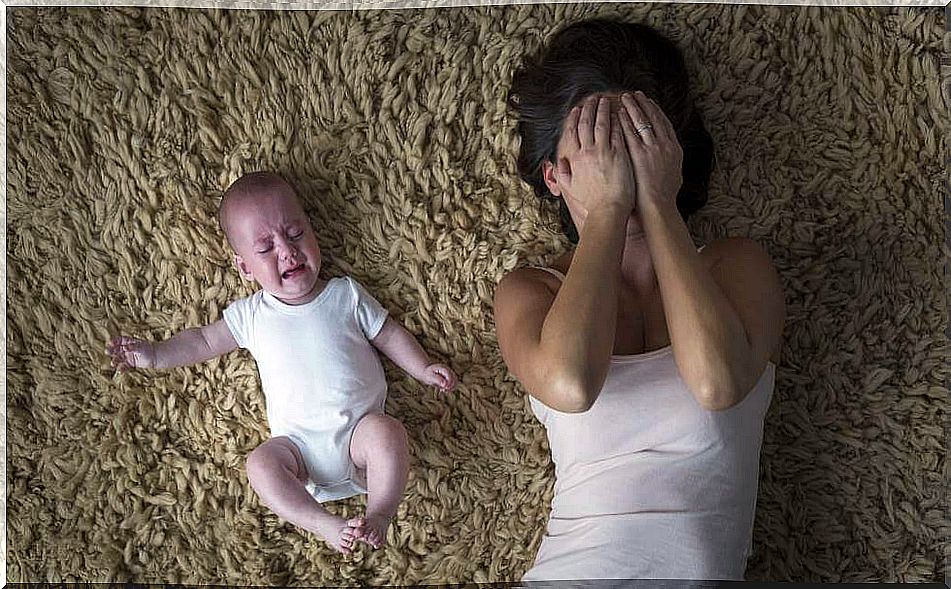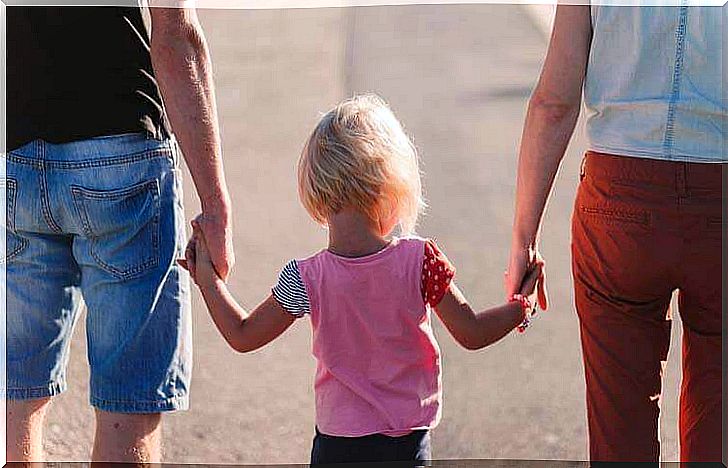Post-adoption Depression: A Misunderstood Risk

Post-adoption depression is a common – not a necessary – response to all the changes that result from an adoption. The new experiences and the ignorance of some of the needs of the adopted child sometimes make the adoptive parents feel overwhelmed and generate this emotional response.
It is a challenge that is not without physical and emotional burdens. Some people in this situation will need help. The arrival home of the new child can produce feelings of joy, happiness or euphoria. This happens with both biological and adopted children.
In some parents, the predominant emotions may be the so-called negative valence, such as sadness or frustration. Emotions that, on the other hand, are also registered in many biological parents after childbirth.
Post-adoption depression: a shadow risk
Unlike postpartum depression, postpartum depression is recognized as a possibility after an uncomplicated pregnancy. In this sense, in recent years we have come a long way, since in many contexts and family nuclei it is spoken openly about it and it is considered from a medical perspective.

Between 50 and 80% of mothers who give birth may suffer from postpartum depression in a mild form. 10% of these mothers can suffer it seriously. The cause seems to be in hormonal changes.
However, post-adoption depression does not enjoy the same social understanding, in some ways it is seen as more “illogical”. This type of depression is not as accepted or understood. This clashes with the statistics. The few studies carried out so far show that there is a high percentage of parents who suffer from it.
When there is no understanding or support
Feelings of connection and bonding with the adopted person usually emerge between two and six months after the adoption. Novice adoptive mothers when they are at this point do not usually ask for help: they are afraid that someone may think that they are not ready or be blamed: “if you did not want to be a mother, have thought about it before starting the adoption period.”
Thus, many of these new mothers are afraid to tell anyone, especially psychologists and social workers, their difficulties in adjusting to their new life. They think that if they express their problems, people will doubt their abilities to take care of the adopted child.
In this way, the already complex situation can become even more complicated. Consider, for example, that on average the help that biological parents in their social circle usually receive after childbirth has nothing to do with the help that adoptive parents usually receive.

Family members of the adoptive parents may not understand why the mother is not fully happy now that she finally has what she had wanted for so long, what until then seemed like a clear and definite desire.
These parents, then, suffer in silence and are filled with shame and guilt for fear of disappointing their family. In fact, they are the ones who often ask the same questions as their relatives without finding any other answer than the one that labels them irresponsible, guilty or capricious.
Causes of Post-Option Depression
What is the reason for the high percentage of parents who suffer from this type of depression? Most adoptive parents spend years trying to have a child to care for. Their long and not always fulfilled hopes, dreams and wishes can lead to unrealistic expectations about what it will really be like to be a parent.
New parents may feel guilty about their mixed emotions. On the one hand they love their new child, but on the other they may feel resentful or angry with this child if he does not meet their expectations.
Believing in an instant bond with this new being or in love at first sight is unrealistic. Falling in love with an adopted child is like falling in love with a partner. The initial passion and euphoria soon give way to the slow and difficult process of adjusting to the daily presence of another human being.

Coping With Post-Option Depression
It is not always going to be easy to adapt to the new changes that the adoption of a child brings. However, there are a number of guidelines that can help. They are as follows:
- When you return home from the place of adoption, make sure you have quality time to spend.
- Don’t feel guilty for not wanting visitors. On the other hand, accept whatever help you need. You are not going to be a worse mother or father because you cannot do everything by yourself.
- Try to extend the maternity leave as long as you can.
- Get enough sleep and exercise. It is more than proven that doing physical exercise improves our “emotional tone”.
- Take your child for a walk. You will have fun together and bond.
- Don’t be afraid to say it. Contact adoption forums or adoptive parent groups. Look for people with similar experiences.
- Ask your family and friends circle to understand you and respect your new decisions. Tell them that you listen to them, but that you have your own criteria and that you will be the person who will have the last word when it comes to your child.
- Make time for yourself and your partner, if you have one. If you have more children, don’t neglect them and dedicate time to them as well.
- Accept your limitations and don’t be afraid to fail. We are human beings, we are not perfect in anything and, of course, not educating.
As we have seen, post-adoption depression is a mood condition that in many cases feeds on a lack of understanding (both of the environment and of the people who suffer from it) . Adoptive parents may fear that their new child will not live up to the expectations they have created, and this can leave them feeling deeply sad and hopeless.
If you find yourself in this situation, the best thing you can do is ask a specialist for help. Don’t be afraid to tell it. Health professionals will understand your case and help you in everything in their power.









